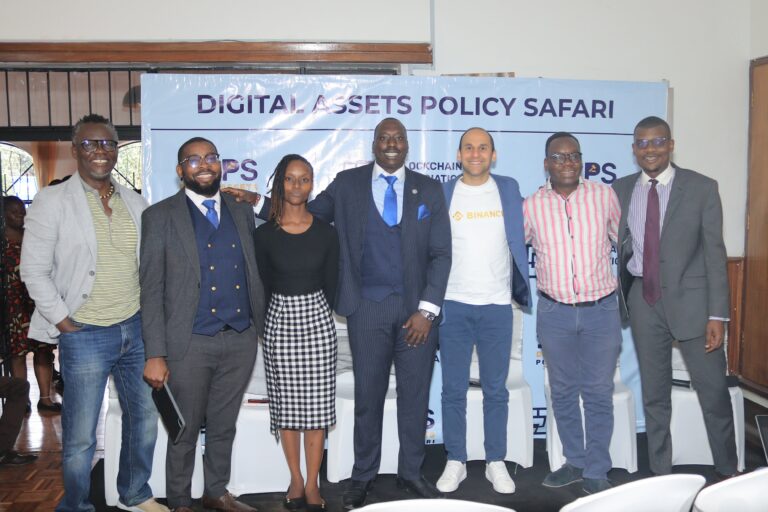BAK unveils Kenya’s first ever Virtual Assets Service Provider Bill

The Blockchain Association of Kenya (BAK) has announced the country’s first-ever Virtual Assets Service Provider (VASP) draft Bill for Kenya’s digital asset industry.
The VASP draft bill comes three months after Kenyan lawmakers mandated the industry lobby group to develop a draft bill to regulate crypto assets in the country.
Kenya’s digital asset industry has suffered from consumer protection concerns such as scams, barriers to entry for digital asset startups and businesses and an onerous tax regime on digital assets.
The draft bill addresses the industry, consumer and regulator concerns by proposing a licensing framework, consumer protection framework, anti-money laundering and counter-terrorism financing (AML/CTF) and a regulatory sandbox.
BAK is inviting all stakeholders affected by the bill from Kenya, Africa and the rest of the world to review, comment and offer feedback by February 7th.
After that, BAK will revise and incorporate feedback into the next iteration of the bill and deliver it to the National Assembly’s Departmental Committee on Finance and National Planning by February 14th, the same committee that tasked the association to develop the draft bill.
Michael Kimani, Founder and Chairman of the Blockchain Association of Kenya said “Since our organization was founded in 2017, we have dreamt to see Kenya elevate its status to a digital asset hub, alongside other jurisdictions like Singapore and Dubai. The draft bill is a significant step in realizing our vision.”
BAK began running a series of policy-focused community town halls around the bill in April 2023 to build momentum.
In May 2023, the group made a submission to the Departmental Committee on Finance and National Planning parliamentary committee regarding a controversial digital asset tax packaged as part of the Finance Bill 2023. Despite the submission, the bill was passed with a controversial 3% gross tax.
On August 31, 2023, the association submitted a petition to the High Court of Kenya to contest the digital asset tax amendment within Kenya’s Finance Act 2023.
After that, the group convened industry stakeholders for a policy-dedicated workshop on September 19, 2023, where the members agreed to design a blueprint for Kenya’s National Digital Asset Policy.
A month later, the association secured a meeting with lawmakers from the National Assembly’s Departmental Committee on Finance and National Planning who tasked them with crafting a bill to govern the cryptocurrency industry in Kenya.
Allan Kakai, the Director of Public Policy and Regulatory Affairs at the Association, who led a team of bill drafters contracted by the lobby group said “By fostering collaboration between legal professionals, regulatory authorities, and industry players, we can navigate the regulatory challenges of digital assets more effectively and pave the way for innovation and growth in the blockchain ecosystem.”
Regulation of digital assets has been a contentious topic in the last year with developed countries such as the United States, Hong Kong and Singapore setting the tone for reining in an industry perceived as wild west by mainstream financial regulators.
In Africa too, countries like Nigeria and South Africa have already put in place regulations to manage the industry which is seen as enabling capital flight and providing avenues for criminal activity such as money laundering.
The draft bill by BAK puts Kenya on the map reinforcing its status not only as a financial and tech ‘silicon savannah’ hub, but also as a digital asset hub. If passed, the bill would see an inflow of much-needed tax revenues into Kenya’s National Treasury coffers.
In addition, the lobby group insists that by enabling business and enterprise innovation, Kenya could unlock investment inflows into some of the most productive sectors in Kenya such as agricultural supply chains, climate and micro, small and medium-sized enterprises (MSMEs).
“Digital assets and blockchain present an opportunity for the Kenyan Government to tap into new ways of fundraising investment into the country to support Kenya’s economic recovery. Our goal is to help Kenya raise $1 billion in foreign direct investments to various sectors as outlined in Kenya’s medium-term economic plan by 2027.” Paul Gachora, co-founder and Chief Executive Office (CEO) of the BAK said.
Follow us on Telegram, Twitter, and Facebook, or subscribe to our weekly newsletter to ensure you don’t miss out on any future updates. Send tips to info@techtrendske.co.ke


